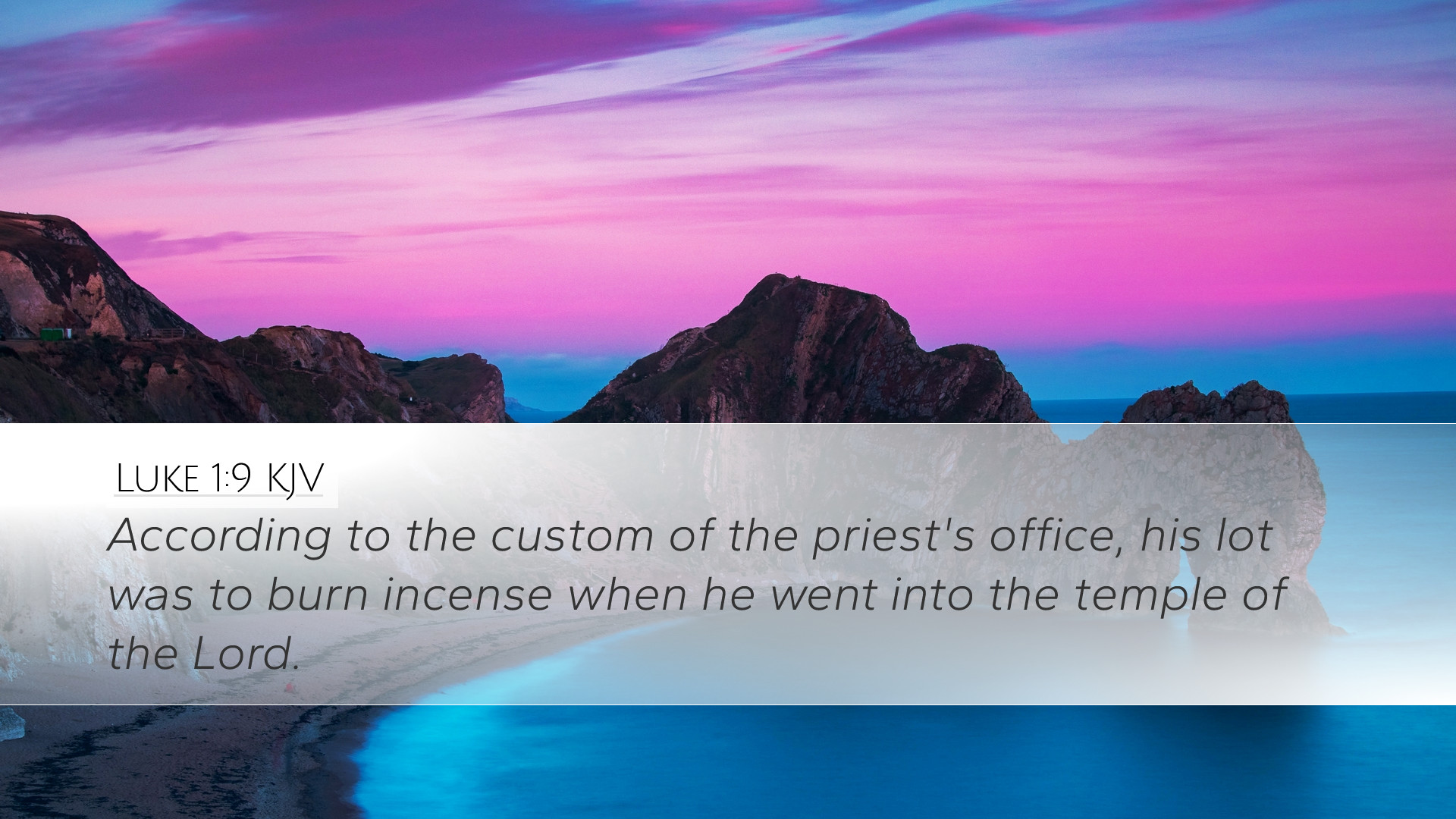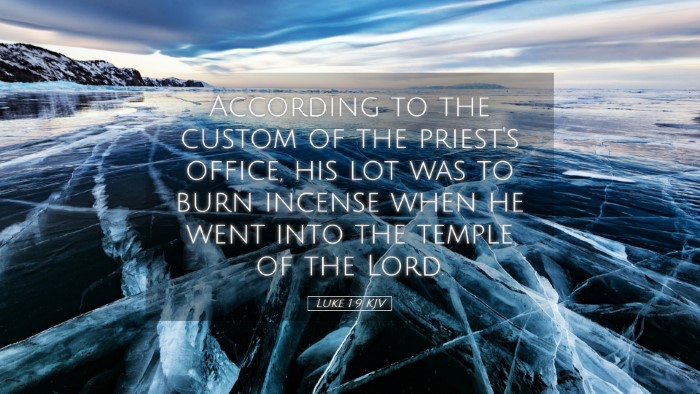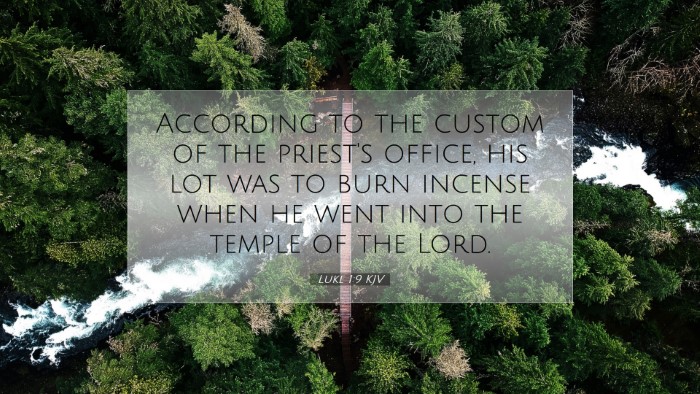Commentary on Luke 1:9
Bible Verse: "According to the custom of the priesthood, he went into the temple of the Lord to burn incense." (Luke 1:9)
Introduction
This verse marks a significant moment in the narrative of Luke’s Gospel, highlighting the priestly service of Zechariah and his encounter with divine intervention. The verse encapsulates the religious practices of the time and sets the stage for the announcement of John the Baptist's birth. This commentary synthesizes insights from several public domain commentators, each shedding light on different aspects of this momentous event.
Context and Cultural Significance
Matthew Henry's Commentary emphasizes the important role of the priest in Jewish worship during this time. The burning of incense was considered a sacred duty, symbolizing the prayers of the people ascending to God. This ritual was not only a personal act for the priest but also an intercessory moment for the nation of Israel.
Albert Barnes expands on the cultural backdrop by explaining that the priests were divided into orders, and Zechariah belonged to the order of Abijah. This division and the rotation of duties meant that each priest would serve in the temple at specified times, thus adding significance to Zechariah's particular service on this day.
Interpretation of the Act
Zechariah’s action of entering the temple to burn incense signifies more than a routine religious observance. Adam Clarke notes that the act serves as a powerful symbol of approaching God and interceding for His people. The temple was considered the dwelling place of God, and the act of burning incense was directly connected to the prayers of the faithful, which were believed to be represented by the smoke of the incense.
Theological Implications
The verse holds rich theological implications. The burning of incense can be seen as a precursor to the ultimate mediation of Christ. Matthew Henry discusses how this foreshadows the intercession of Jesus on behalf of humanity, highlighting that Zechariah performs this act in a period of anticipation for the Messiah's coming.
Spiritual Application
This passage encourages believers to reflect on their own prayer lives. Albert Barnes suggests that just as incense rises as a fragrant offering to God, so should our prayers be earnest and sincere, rising from a heart devoted to God. The symbolism of incense invites us to consider the purity and intention behind our requests and intercessions before the Lord.
Personal Reflection and Response
In a time of ritual and devotion, Zechariah stands as a model for modern believers. Adam Clarke points out that despite possible feelings of unworthiness or inadequacy, it is essential to approach God with faith and humility in our prayers. The act of burning incense serves as a reminder that our endeavors to connect with God are honored and valuable, regardless of our circumstances.
Conclusion
Luke 1:9 encapsulates a pivotal moment in both the historical and spiritual narrative of the Gospel. As we deepen our understanding of Zechariah's priestly duties and the significance of his prayers, may we too cultivate a life of prayer that echoes the fragrance of incense—rising to God in faith, hope, and expectancy. This passage serves not only as a historical account but as an enduring message on the power of prayer and intercession in the life of every believer.


